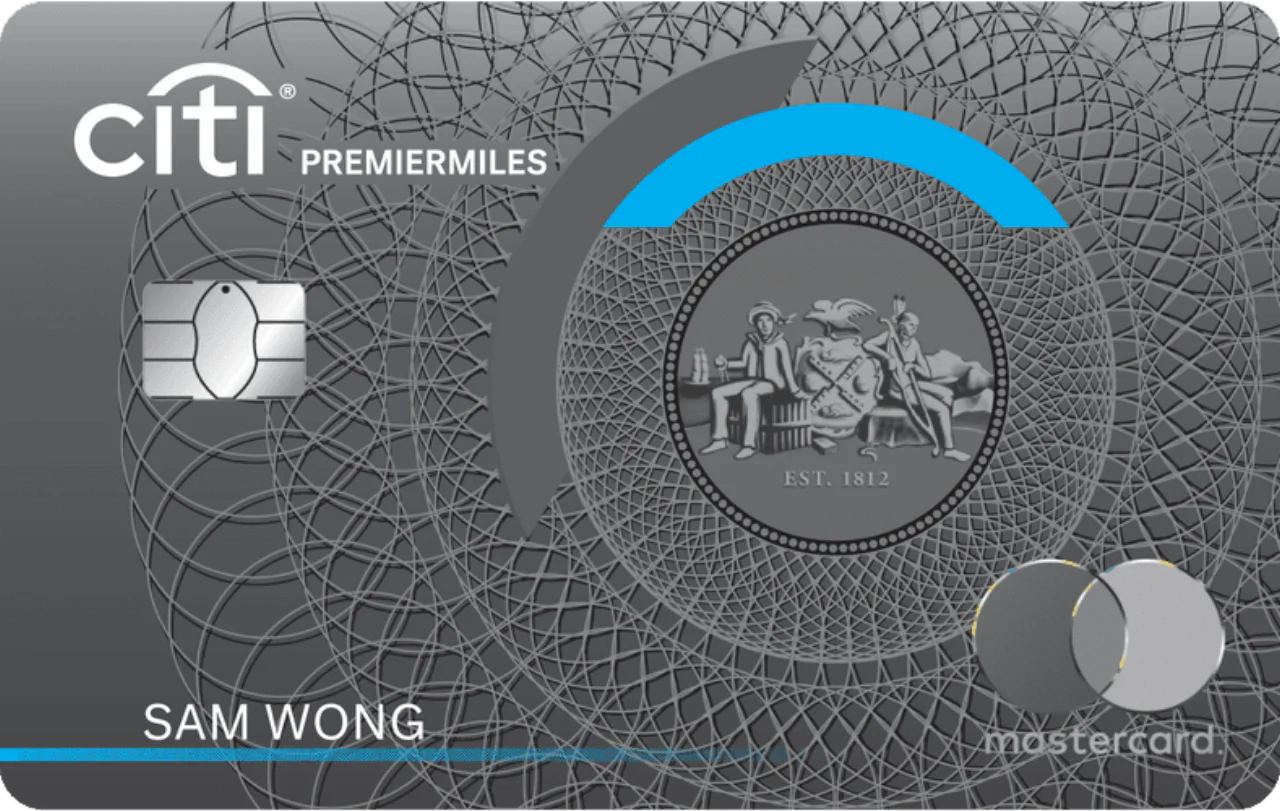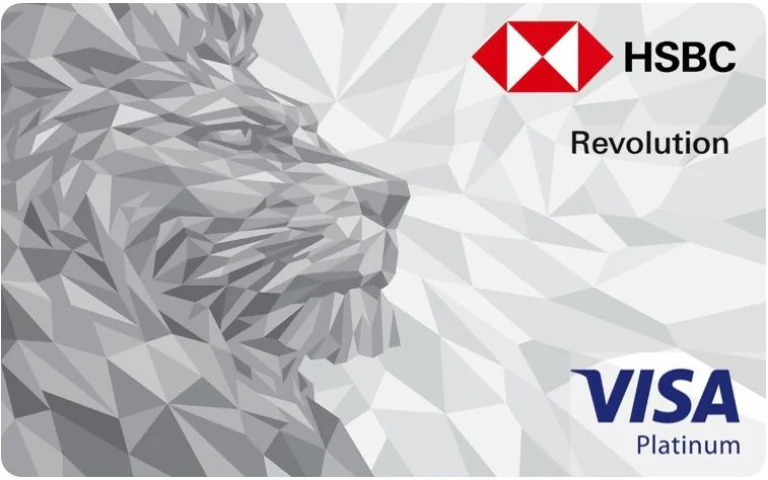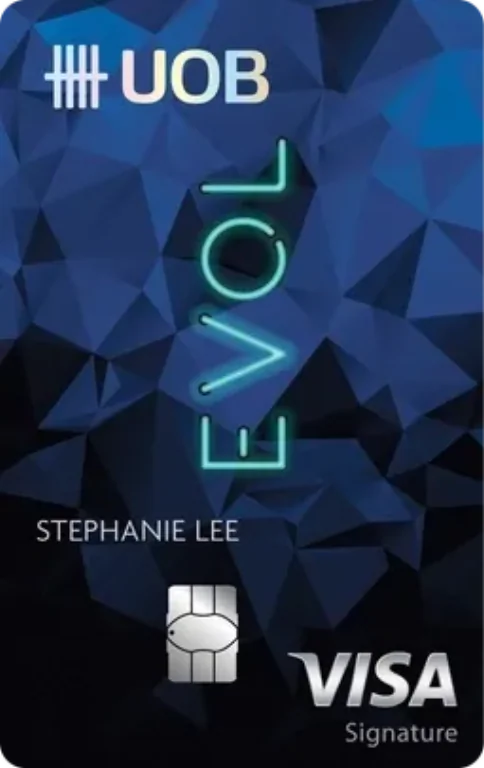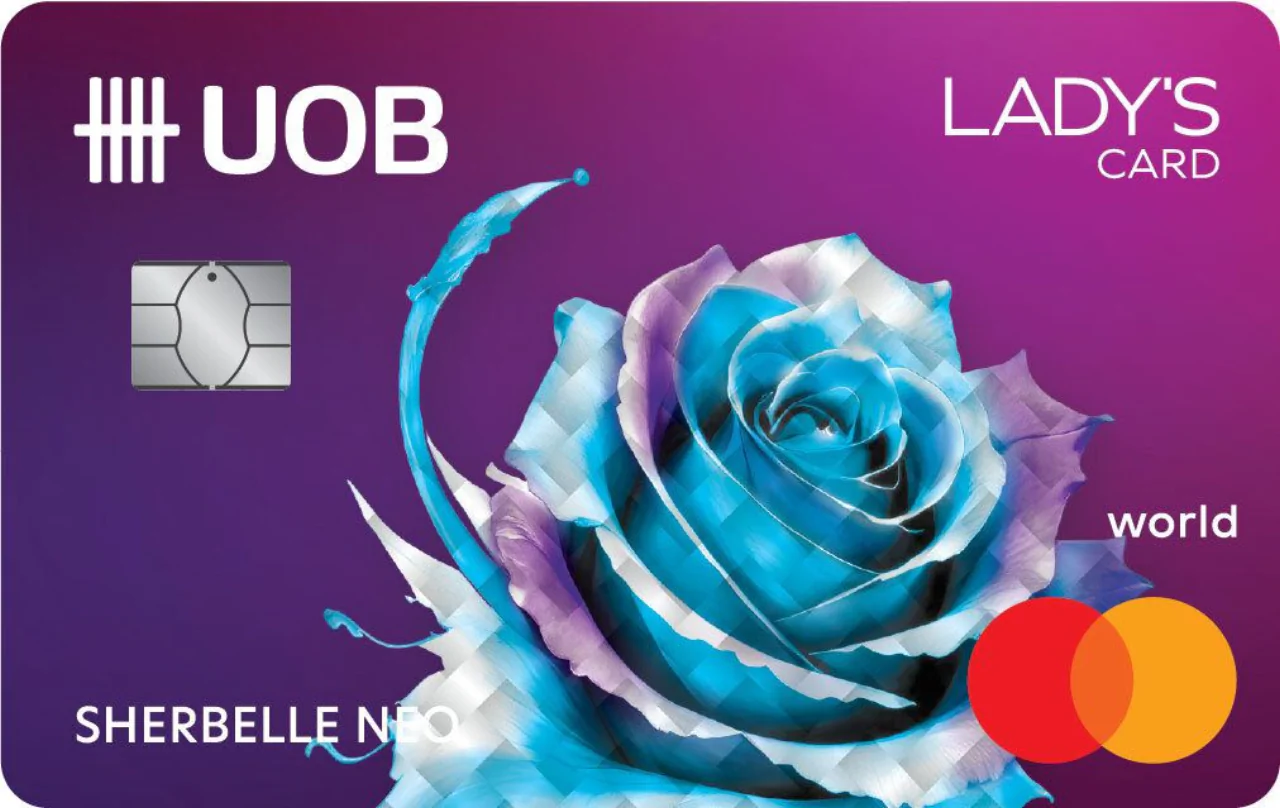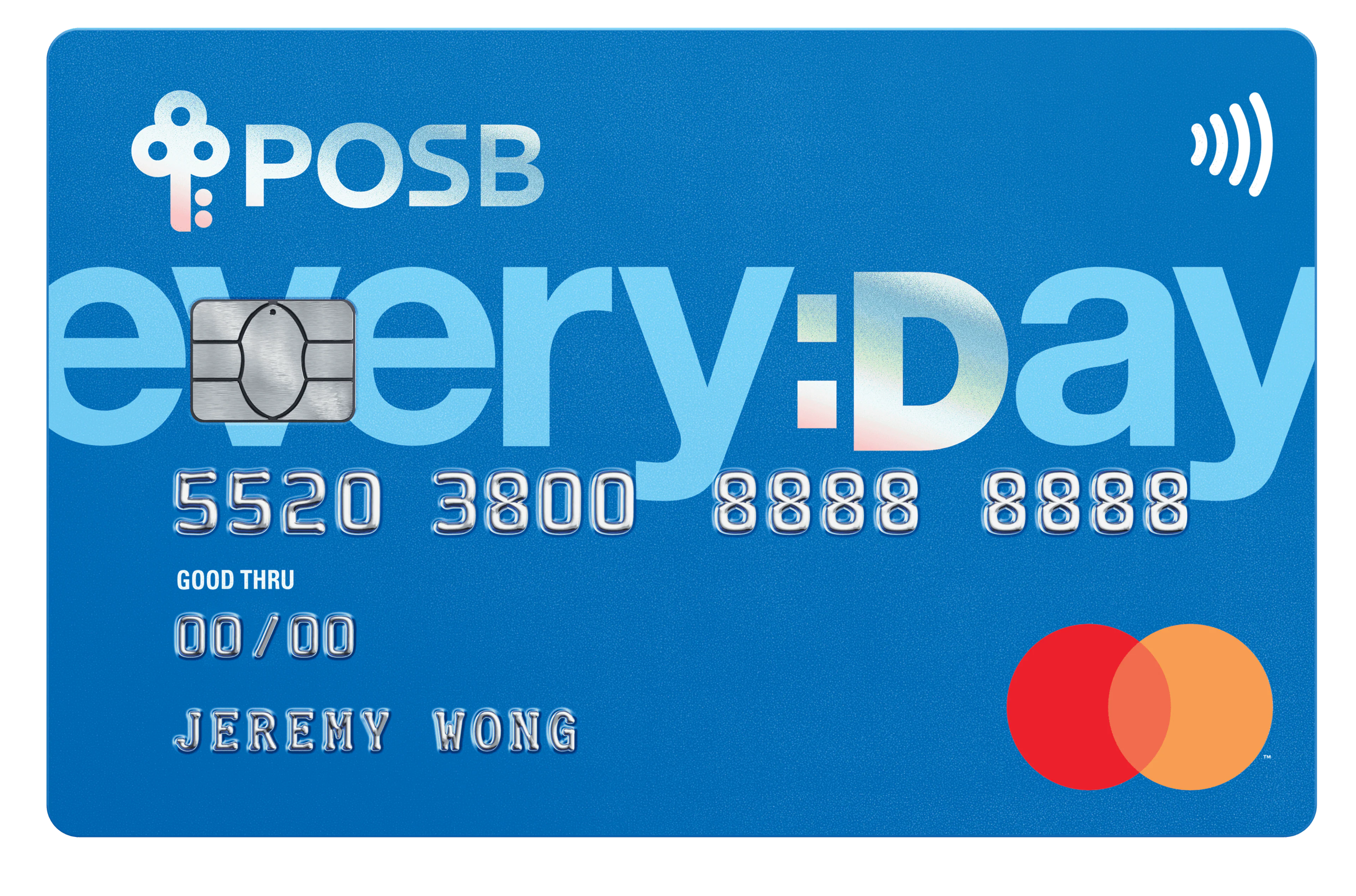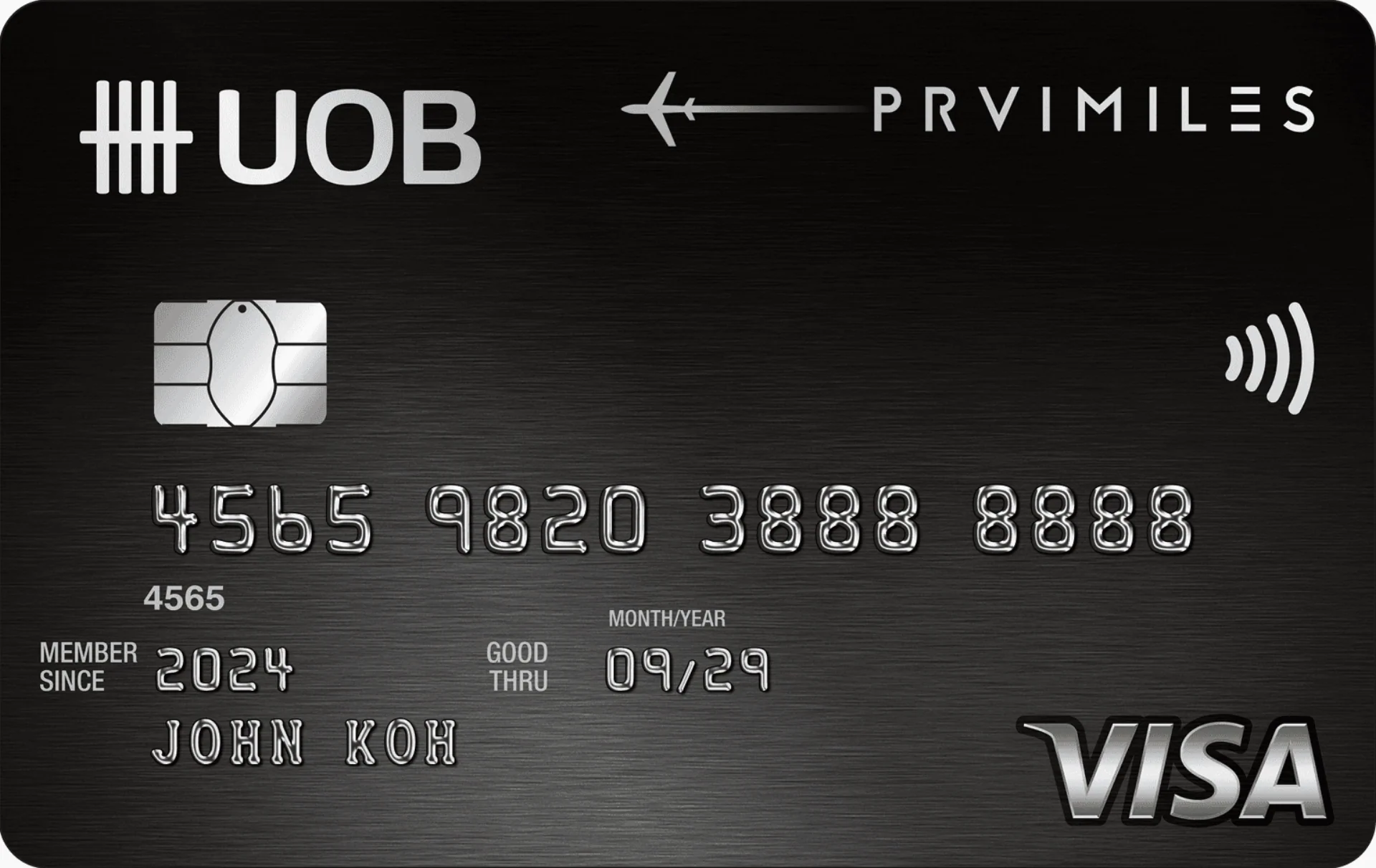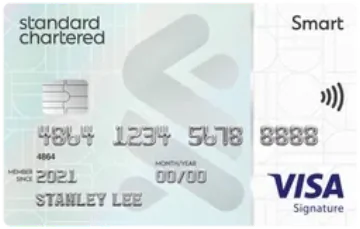How to Get a Credit Card in Singapore When You Have No Credit Score
Updated: 26 Aug 2025
Written bySingSaver Team
Team
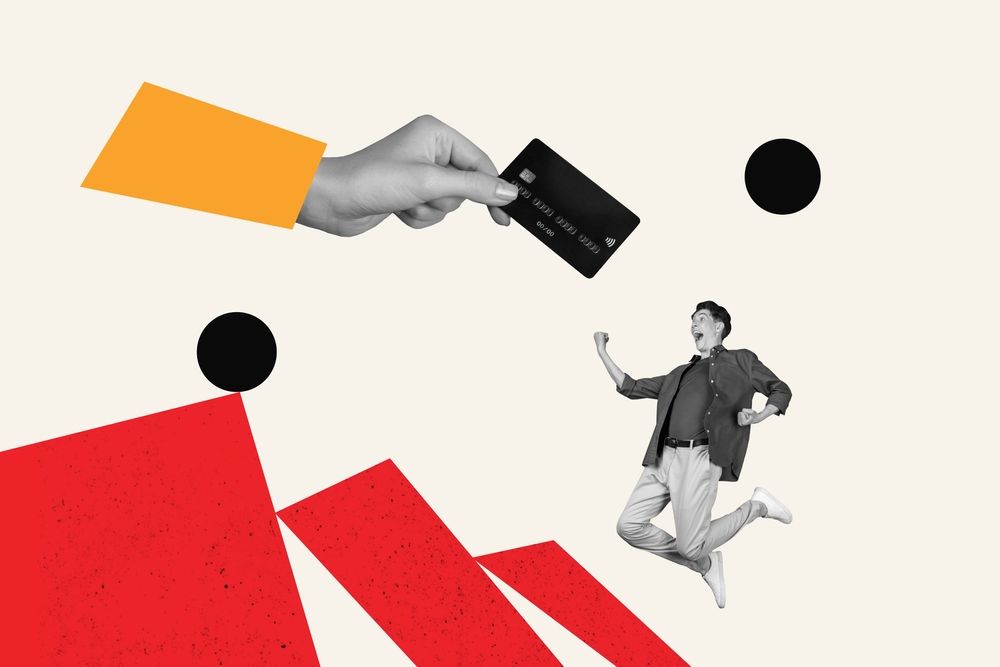
The information on this page is for educational and informational purposes only and should not be considered financial or investment advice. While we review and compare financial products to help you find the best options, we do not provide personalised recommendations or investment advisory services. Always do your own research or consult a licensed financial professional before making any financial decisions.
Find your ideal credit card
Explore the best credit card options from Singapore's top banks to find the perfect fit for your needs
Our selection for: Building credit with subscriptions
- Earn up to 10% cashback for spends above S$1,500 on selected merchants.
- Earn up to 8% cashback for spends above S$800 on selected merchants.
- Enjoy 0.5% cashback for all base spends with no monthly cashback cap.
- Enjoy peace of mind when your flight is delayed with Visa SmartDelay™, which offers complimentary access to over 1,700 airport lounges and travel experiences.
- Interest-free instalments with SC Easy Pay.
- No cash advance fee.
- No annual fee.
- No cashback cap.
- Flexible redemption options for miles, cashback or shopping vouchers
- Streaming, dining and commuting
- Interest-free Installments with SC Easy Pay
- No Annual Fee
- Cashback awarded in the form of 360° Rewards Points.
- Points expire after 3 years.
Our selection for: Earning miles that never expire
- 1.2 miles per S$1 spent locally.
- 2.2 miles per S$1 spent in foreign currency.
- Citi Miles never expire. Can be exchanged for a variety of frequent flyer miles, hotel stays, rewards and cash rebates.
- Use Citi PayAll to earn Citi Miles, Citi ThankYou PointsSM or Cash Back when you pay your bills with your Citi Credit Card.
- Earn miles on rent, condo management fees, school fees, taxes and bills via Citi PayAll.
- 2 free airport lounge visits per year to participating Priority Pass lounges worldwide.
- Up to S$1 million travel insurance coverage when you charge your travel tickets to this card. There will be a revision made to the Citi Credit Cards complimentary travel insurance. The Travel Insurance coverage in respect of a Trip charged to Citi PremierMiles Card will be updated to end on 31 March 2026. For more information, please click here.
- 11 different airline and hotel transfer partners.
- Generous sign-up bonus with relatively low minimum spend.
- Read our full review of the Citi PremierMiles Card.
- No expiry air miles
- Airport lounge
- Travel rebate
- Gift: Apple product
- Admin fee of S$25 (excluding GST) for each conversion of Citi Miles to frequent flyer miles.
- Service fee applies to Citi PayAll facility.
Our selection for: International students
UOB EVOL Card
- Enjoy no FX fees on overseas foreign currency spend worldwide with no min. spend, no cap.
- Enjoy 10% cashback on Local Online and Mobile Contactless (Apple Pay, Samsung Pay, google Pay) Spend
- 10% on Selected Gym, Telco and Streaming Spend
- Get 3% cashback on all Overseas FX Spend till 31 Jan 2026.
- Get 10% cashback on mobile contactless MYR spend in Malaysia till 31 Jan 2026.
- All other spends earn 0.3% cashback.
- Gain access to over 1,000 deals at eco-friendly, dining, and online shopping merchants.
- Receive a first-year annual fee waiver. Annual fee for subsequent years waived with min. 3 transactions every month.
- Get greater savings with up to 4.5% p.a. interest with UOB One Account+.
- Online shopping rebate
- Mobile contactless rebate
- No FX fees
- Overseas in-store FX spend rebate
- Minimum spend of S$800 each statement month to enjoy accelerated cashback earn rate.
- S$80 total cashback cap per statement month (S$30 cap for local online and mobile spend; S$20 cap for selected gym, telco and streaming spend; and S$30 cap for all other spend. Plus, additional $20 cap on the 1% cashback on all Overseas Foreign Currency Spend till 31 Dec 2025.
- Additional S$20 cap on 10% cashback on mobile contactless MYR spend in Malaysia and S$20 cap on 1% cashback on all overseas FX spend till 31 Jan 2026.
- Monthly spend required
Our selection for: No annual fee
HSBC Revolution Credit Card
- Borrow up to 90% of your available credit limit, enjoy interest rates as low as 2.6% p.a., and get flexible payment terms up to 60 months when you apply with promo code CIPSS. T&Cs apply.
- 10X Points (equivalent to 4 mpd) on online and contactless spending, capped at 13,500 bonus points per month. Valid till 31 March 2026.
- 1X reward point for all other spending.
- No minimum spend required.
- No annual fee.
- Receive complimentary access to ENTERTAINER with HSBC app, with over 1,000 1-for-1 deals on dining, lifestyle and travel worldwide.
- Eligible categories: Online payment; shopping; groceries; dining; food delivery; ride-hailing apps.
- Up to 16% and 14% off petrol at Caltex and Shell respectively.
- Instant reward redemption for airline miles and hotel points, refer to www.hsbc.com.sg/rewards for details.
- Up to S$300,000 complimentary travel insurance for cardholder and family when travel tickets are charged to card.
- Compatible with Apple Pay, Google Pay, and Visa PayWave.
- Can convert between cashback, miles, or reward points flexibly.
- Great for individuals who prefer flexibility to redeem Reward points to categories such as miles, cashback & more
- Read our review of the HSBC Revolution Credit Card.
- Online shopping rebate
- Travel rebate
- No Annual Fee
- Operates on a whitelist basis. Only selected MCCs shown in the T&Cs qualify for bonus points.
- Cap of 13,500 bonus reward points per calendar month on eligible purchases (valid till 31 Oct 2025). Original cap at 9,000 reward points.
- 1X reward point earned on public transport (via SimplyGo) only.
- HSBC reward points expire after 37 months.
- High base minimum annual income requirement of S$65,000 (w.e.f. 1 October 2025) Learn more.
Our selection for: Reward points for specific spending categories
UOB Lady's Card
- Pick from 7 rewards categories to earn up to 25X UNI$ for every S$5 spend (10 miles per S$1)
- Spend on UOB Lady's Credit Card to earn 10X UNI$ (4 miles per S$1) and enjoy additional up to 15X UNI$ (6 miles per S$1) when you pair your UOB Lady's Credit Card with UOB Lady's Savings Account
- LuxePay: Enjoy 0% 6 or 12-month instalment plan when you purchase your favorite luxury apparels.
- Complimentary e-Commerce protection on your online purchases.
- Enjoy UOB$ rebate on your daily essentials, entertainment and shopping.
- Local & Overseas spending rewards
- Installment
- No monthly spend required
- You can only choose 1 rewards category out of 7 to earn up to 25X UNI$ (10 miles per S$1). Feel free to change your category every quarter.
- You must save with UOB Lady’s Savings Account to unlock up to additional 15X UNI$ (6 miles per S$1) earn rate on your preferred rewards category.
- Terms and conditions apply for all above-mentioned privileges. Visit here for more details. Insured up to S$100,000 by SDIC.
- Monthly rewards cap applies.
Our selection for: Collecting miles
UOB PRVI Miles Visa Card
- Earn 3 miles per S$1 spend (UNI$7.5 per S$5 spend) on regional spend in Indonesia, Malaysia, Thailand, Vietnam, including online shopping on overseas website.
- Earn 2.4 miles per S$1 spend (UNI$6 per S$5 spend) on other overseas spend, including online shopping on overseas websites.
- Earn 1.4 miles per S$1 spend (UNI$3.5 per S$5 spend) on local spend.
- 4 complimentary lounge visits per calendar year for principal cardmembers.
- Earn up to 8 miles per S$1 spend (UNI$20 per S$5 spend) on agoda and Expedia bookings via UOB PRVI Miles website.
- Earn up to 6 bonus KrisFlyer miles for every S$1 spend if you also apply for a new KrisFlyer UOB Account.
- Complimentary personal accident coverage and emergency medical assistance of up to S$500,000.
- Choice to redeem for miles, cashback, or vouchers.
- No minimum spend and no cap on earned miles
- Bonus air miles
- Unlimited air miles
- Travel insurance
- No monthly spend required
- Annual fee of S$261.60
- Terms and conditions apply for all above-mentioned privileges. Visit here for more details. Insured up to S$100,000 by SDIC.
Our selection for: No credit check + easy account management
POSB Everyday Card
- Up to 10% cash rebates on food delivery via foodpanda, GrabFood and Deliveroo.
- Up to 10% cash rebates on in-store spend in Malaysian Ringgit (MYR).
- Up to 10% cash rebates on SimplyGo.
- Up to 5% cash rebates on Amazon.sg, Lazada, Shopee, RedMart, Taobao and TikTok Shop.
- Up to 5% cash rebates at Popular bookstores (in-person and online)
- 5% cash rebates at Sheng Siong supermarkets.
- 6% cash rebates at SPC.
- 3% cash rebates at Pet Lovers Centre.
- 0.3% cash rebates on all other eligible spend.
- Cash rebates (in Daily$) never expire.
- Read our full review of the POSB Everyday Card.
- Food delivery
- Online shopping rebate
- Min. spend of S$800 per calendar month required for accelerated cash rebate earn rate.
- S$20 monthly cash rebate cap for dining, Sheng Shiong, Popular, online shopping, SimplyGo, and MYR categories respectively.
- Rebate cap applied
- Monthly spend required
What is a credit score?
In Singapore, your credit score is a numerical representation of your creditworthiness. It's calculated by the Credit Bureau Singapore (CBS) based on your credit history, including factors like:
-
Payment history: Paying your bills on time is crucial. Late payments can lower your score.
-
Credit utilisation: This is the percentage of your available credit that you're using. Keeping your utilisation low (ideally below 30%) shows responsible credit management.
-
Credit history length: A longer credit history generally indicates greater creditworthiness.
-
Credit mix: Having a mix of different types of credit (e.g., credit cards, loans) can positively impact your score.
-
New credit applications: Too many credit applications in a short period can lower your score.
You can obtain your credit report from the CBS website for a small fee. This report includes your credit score and detailed information about your credit history.
What to look for in a credit card for low credit
Choosing the right credit card for low credit involves considering several key factors:
Eligibility criteria
When considering a good credit card for bad credit, it's important to understand the eligibility criteria. Most credit cards in Singapore have minimum income requirements, which can vary depending on the card and issuer. While some cards are specifically designed for bad credit, others may have minimum credit score requirements.
Lenders may also consider your credit history, including any past delinquencies or bankruptcies. Some cards may advertise that they don't perform a credit check. This can be appealing if you're worried about your credit score, but be sure to understand the other eligibility requirements and fees associated with these cards.
Secured or unsecured
Credit cards can be categorised as secured or unsecured. Secured cards require a security deposit that typically becomes your credit limit. They’re often easier to obtain with bad credit and can help you rebuild your score.
Unsecured cards, on the other hand, don't require a security deposit but may have higher fees or stricter eligibility criteria for those with bad credit. Choosing between a secured and unsecured card depends on your individual circumstances and credit-building goals.
>> More: Building Credit Responsibly With Secured Credit Cards In Singapore
Credit bureau reporting
Credit bureau reporting is an essential aspect to consider when choosing a credit card, especially if you're aiming to build or rebuild your credit. Ensure the card reports your account activity to credit bureaus in Singapore, as this is crucial for establishing a positive credit history. Responsible credit card use, such as making on-time payments and keeping your credit utilisation low, will be reflected in your credit report and can help improve your credit score over time.
Fees
Fees can impact the overall cost of using a credit card. Look for cards with low or no annual fees to minimise costs, especially if you're starting with a limited credit history. Be aware of potential fees like late payment fees, cash advance fees, or foreign transaction fees, as these can add up quickly. Choosing a card with minimal fees can help you manage your finances more effectively while rebuilding your credit.
Upgrades
Consider if the card issuer offers upgrade options to better cards once your credit score improves. This allows you to transition to a card with more benefits and rewards while maintaining your credit history. Upgrading your card can provide access to higher credit limits, lower interest rates, and more attractive perks, ultimately enhancing your financial flexibility and creditworthiness.
Security deposits: What you need to know
Secured credit cards require a security deposit to open the account. This deposit acts as collateral for the issuer and minimises their risk in lending to you. The deposit amount can vary depending on the card and issuer, so it's important to compare options and choose a deposit amount that you're comfortable with.
The good news is that this deposit is typically refundable. You can usually get your deposit back when you close the account in good standing or if you upgrade to an unsecured credit card after demonstrating responsible credit usage. Some secured cards even offer a small amount of interest on your deposit, providing a slight return on your investment.
>> More: Best Cash Management Accounts In Singapore To Soup Up Your Savings (2025)
Using a credit card to improve your credit
Using a credit card responsibly is one of the best ways to improve your credit score. This involves several key practices:
Paying your credit card bill on time
Paying your credit card bill on time is crucial for building and maintaining a good credit score. Aim to make at least the minimum payment by the due date each month to avoid late fees and negative marks on your credit report. Late payments can affect your creditworthiness, making it harder to get approved for loans, credit cards, and even housing or employment in the future.
Ideally, you should strive to pay your balance in full each month to avoid accruing interest charges and keep your credit utilisation low. Setting up automatic payments or reminders can help you stay on track and avoid missed payments.
Don’t max out your credit card
Maxing out your credit card means using your entire credit limit, which can negatively impact your credit score. Credit utilisation, the ratio of your credit card balance to your credit limit, is a significant factor in credit scoring models. A high credit utilisation ratio, especially nearing your credit limit, can signal to lenders that you're relying heavily on credit and may be overextended financially. This can lower your credit score and make it harder to get approved for new credit.
Aim to keep your credit utilisation below 30% to demonstrate responsible credit management. For example, if your credit limit is S$5,000, try to keep your balance below S$1,500. Keeping your credit utilisation low shows lenders that you're managing your credit responsibly and have a good handle on your finances.
Keeping old credit card accounts open
The length of your credit history is an important factor in your credit score. The longer you've had active credit accounts, the better it is for your creditworthiness. Therefore, it's advisable to keep your oldest credit card accounts open and active, even if you don't use them frequently.
Closing old accounts can shorten your credit history and potentially lower your score, especially if those accounts have a positive payment history. Even if you don't use the card regularly, make a small purchase once or twice a year to keep the account active and avoid having it closed for inactivity by the issuer.
Keeping new credit applications to a minimum
Each time you apply for a new credit card or loan, the lender typically performs a "hard inquiry" on your credit report. These hard inquiries can temporarily lower your credit score, especially if you have multiple inquiries within a short period. Lenders may view multiple inquiries as a sign of financial instability or desperation for credit, which can negatively impact your creditworthiness.
Therefore, it's advisable to keep new credit applications to a minimum, especially when you're focused on rebuilding your credit. Only apply for credit cards or loans that you genuinely need and are likely to be approved for. Spacing out your credit applications over time can minimise the impact on your credit score and demonstrate responsible credit behavior.
Tracking your progress
Stay on top of your credit health by monitoring your credit score regularly and checking your credit report for any errors or discrepancies. You can access your credit report for free from the CBS once a year.
Regularly reviewing your report allows you to track your credit score, identify any inaccuracies, and dispute errors with the CBS to have them corrected. This is crucial because errors in your credit report can negatively affect your score and your ability to access credit.
Next steps: After your credit has improved
Once your credit score has improved, you have several options to consider:
-
Upgrade your card: If your current issuer offers upgrades, consider switching to a card with better benefits and rewards. This allows you to enjoy perks like higher cashback, air miles, or lounge access while maintaining your credit history.
-
Apply for a new card: With a better credit score, you may now qualify for rewards credit cards that offer attractive benefits and perks, such as cashback, air miles, or reward points. Explore options from different banks to find a card that aligns with your spending habits and financial goals.
-
Keep your old card open: Even if you get a new card, consider keeping your old account open (if it has no annual fee). This helps maintain your credit history length, which is a factor in your credit score.
Frequently asked questions about credit cards for low credit
-
Personal details: Full name, NRIC/FIN number, contact information, date of birth, nationality.
-
Employment details: Current employer, job title, length of employment, annual income.
-
Financial information: Bank account details, outstanding loans or debts, other credit cards.
-
Security deposit details: You'll need to provide information about the source of your security deposit and the amount you intend to deposit, typically a fixed deposit of at least S$10,000..
-
Credit history: You may need to provide consent for the lender to access your credit report from the Credit Bureau Singapore.
-
Eligibility: Ensure you meet the card's eligibility criteria, including income requirements and any credit score or history checks.
-
Security deposit: Compare the required security deposit amounts for different cards and choose an amount that aligns with your budget and financial goals.
-
Fees: Compare annual fees, interest rates, and other potential charges to minimise costs.
-
Credit building features: Look for cards that report to credit bureaus and offer tools or resources to help you improve your credit score.
-
Upgrade options: Consider if the card issuer offers upgrade options to better cards once your credit score improves.
"Bad credit" generally refers to a low credit score, which can be below 1723 in Singapore. This indicates to lenders that you may be a higher-risk borrower due to factors like missed payments, high credit utilisation, or a limited credit history. Having bad credit can make it harder to get approved for credit cards or loans, and even if you are approved, you may face higher interest rates and less favourable terms.
Yes, you can still get a credit card even with a poor credit history. There are specific credit cards designed for individuals with bad credit or no credit history at all. These cards often have less stringent eligibility requirements and may not require a minimum credit score. However, they may come with higher interest rates or fees. Secured credit cards are also a good option, as they require a security deposit that reduces the risk for the lender and increases your chances of approval.
While secured credit cards are a common and often recommended option for individuals with bad credit, they’re not your only choice. Some unsecured credit cards are also available for those with low credit scores. However, these cards may have stricter eligibility criteria, higher interest rates, or lower credit limits compared to secured cards. It's essential to compare your options and choose the card that best suits your needs and financial situation.
Applying for a secured credit card generally involves providing similar information to a regular credit card application, with the addition of details regarding your security deposit. Here's a breakdown of the typical information required:
Keep in mind that specific requirements may vary depending on the card issuer and the type of secured card you're applying for. It's always advisable to check the issuer's website or contact their customer service for a detailed list of required documents and information before starting your application.
Choosing the right credit card when you have bad credit requires careful consideration. Here are some key factors to keep in mind:
About the author
SingSaver Team
At SingSaver, we make personal finance accessible with easy to understand personal finance reads, tools and money hacks that simplify all of life’s financial decisions for you.
